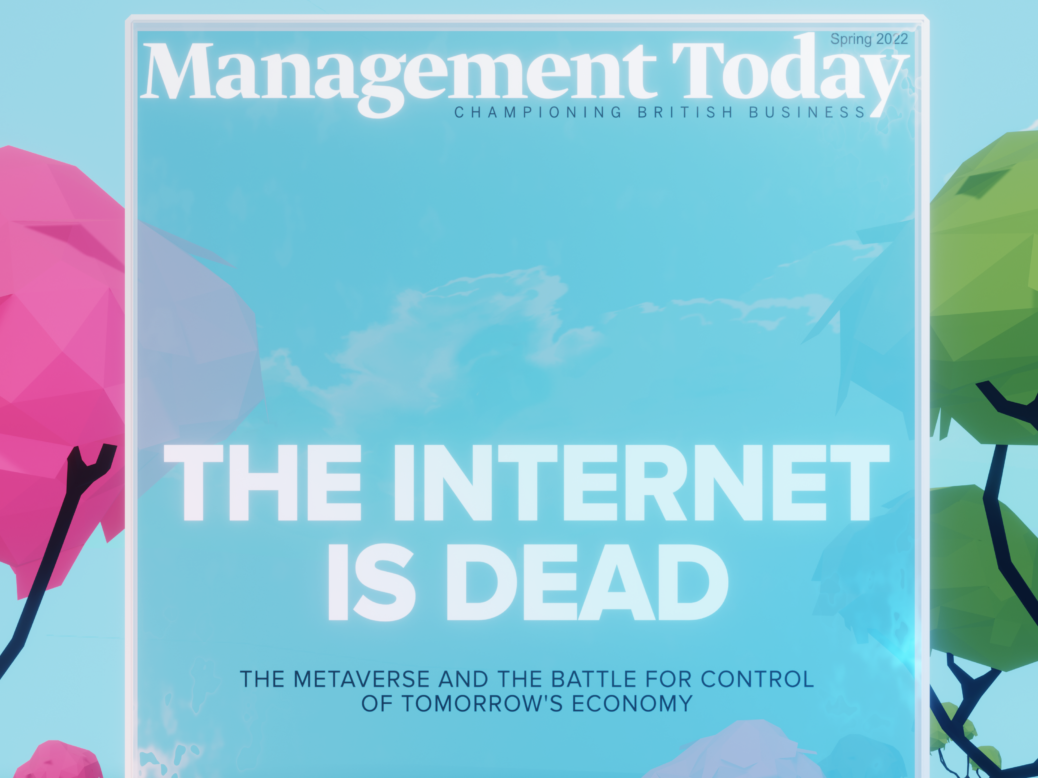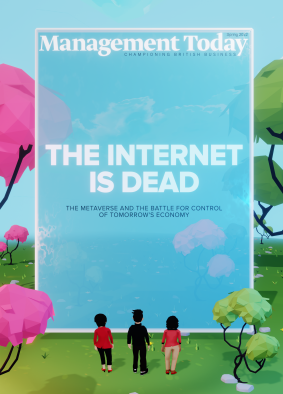
An experiment in the metaverse at B2B magazine Management Today gave it “credibility” when reporting on the new technology and may have helped lead to a 150% jump in page views, according to its editor.
Kate Magee urged other publishers to try out the new technology if they have the time and resources due to the interest from young audiences, but warned things to bear in mind include consumer trust, internal skills, and a lack of data.
In March, Management Today claimed to become the first English-language magazine in the metaverse when it set up a virtual cover of the quarterly magazine in the platform Decentraland.
Magee told Press Gazette this had led to an increase in brand engagement and helped it “stand out among the glut of stories” about the metaverse and give the brand “credibility” on the subject.
She said: “For our audience who are always looking for ways to grow… it felt like the metaverse was certainly a space they would be interested in.
“Instead of just writing another feature we could go a bit deeper and do it ourselves, which helps enrich our storytelling.”
What did Management Today do in the metaverse?
Haymarket-owned Management Today’s chosen platform Decentraland has 500,000 monthly users, is reliant on blockchain technology and aims to give users more control over their data.
Users buy virtual plots of land that they can then build things on or rent out to others. Magee says that while plots were originally $10 or $20 they have since become “worth thousands”.
Partnering with marketing company R/GA who owned two plots of land, the team built a virtual cover of the Management Today front cover that was “the virtual equivalent of 12 metres high”.
 The cover featured the line “The Internet is Dead” which Magee said was intentionally provocative to “attract attention” and also alluded to the fact that “the internet as we know it is over” thanks to the blockchain technology of Web 3.0 – the name that has been given to the decentralised internet.
The cover featured the line “The Internet is Dead” which Magee said was intentionally provocative to “attract attention” and also alluded to the fact that “the internet as we know it is over” thanks to the blockchain technology of Web 3.0 – the name that has been given to the decentralised internet.
The project took four months in total, but Magee said “it could be much faster if you were paying a lot of money for someone to work directly on it”.
She advised: “When you enter a community space you have to be thinking about earning your space. There’s been lots of backlash from different brands going into games and trying to be too promotional… people don’t want to be promoted to.”
Magee said that in order to earn their space and increase engagement the cover included links to other Decentraland locations such as the Australian Open stadium and different stores, and a link back to Management Today’s quarterly magazine.
What was the benefit of going into the metaverse?
Management Today made its magazine, usually behind a paywall, accessible to those coming through these links, which Magee said “added value to the community” and helped lead to a “150% page view increase” when compared to the previous quarter.
Magee however “can’t prove” that the increase in views came directly from users in the metaverse, as they instead could have been due to general “interest in metaverse content”. Magee cautioned publishers to “watch out for” the fact it is “difficult to measure [this data] in the metaverse”.
When asked about the future of journalism in the metaverse, Magee said she did not think “anyone really knows” what is to come since the concept is so new.
But she urged publishers to “keep an eye on these areas” to avoid repeating mistakes made during the “internet revolution” where “the general perception was that the publishing industry was slow to the web”.
“These technologies are really nascent and will grow and evolve as we go forward…. but there are interesting things that people are doing,” she said.
A number of other publications have begun to experiment with metaverse and Web 3.0 technology, for example Time magazine making $10m from NFTs, South China Morning Post selling NFTs of its newspaper archives and creating an immersive experience in the gaming platform The Sandbox, and Hearst UK building a Cosmopolitan experience in the platform Roblox.
What publishers need to know before diving into the metaverse
Magee said that in these spaces it is important to prioritise “immersive storytelling and social connection”.
But while Magee advised publishers to be open to the possibilities of the metaverse, she said that before they start, a media brand should have “proper knowledge in [their] team” and ask themselves “what am I going to gain?”
“There’s lots of questions before you even jump into it,” said Magee. “Decentralised platforms are built on blockchains, so can your company accommodate [cryptocurrencies] and if so what are the tax and security implications? Do you have the internal skills to create immersive experiences?”
Magee also said that brands should make sure that entering the metaverse aligns with their image, and said “the environmental concerns over some of these blockchains using a huge amount of energy” should be in the mind of “green” brands.
The infancy of the metaverse has also sparked scepticism for many which Magee says is “valid”.
“There’s lots of valid concerns there… I think [the environmental impact] is one of the big challenges to all of these different platforms, but I think there are changes that are happening that mean they don’t use up as much energy in the future.”
Magee added: “There are other concerns as well around trust, how you trust different things in the platforms. But I think [these concerns] are the same that you would get in most technologies.”
While Management Today has no active plans to re-enter the metaverse, Magee said she is “interested in pilot projects that are taking place about how publishers can work with this technology”.
Magee said: “It’s interesting to experiment with these things if you have the time and resources. As publishers we need to go where our audience is. It may not be that a lot of them are there now, but they could be in the future.
“The younger generation are growing up on some of these gaming platforms like Roblox and Minecraft and Fortnite, and they’re going to become one of the major consumer groups in the future. So I think it’s definitely worth keeping an eye on.”
Press Gazette is hosting the Future of Media Technology Conference. For more information, visit NSMG.live
Email pged@pressgazette.co.uk to point out mistakes, provide story tips or send in a letter for publication on our "Letters Page" blog
